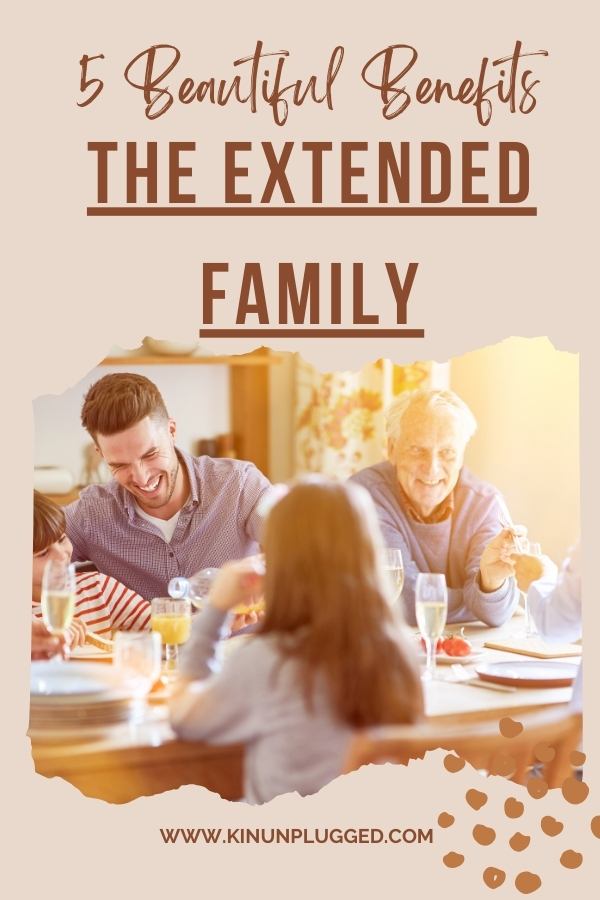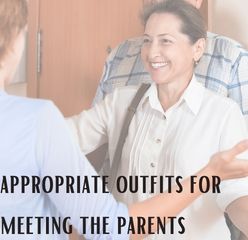It is possible to find it difficult to distinguish between an extended family vs nuclear family. Although they are very different, depending on the specific family, the line between the two can become quite blurred.
In this article, we will look at the extended family vs nuclear family and understand the differences between the two. We will also gain a clear understanding of what each is. It will also be interesting to consider what the possible disadvantages of the extended family structure are.
RELATED: The 3 Main reasons why the Village is Missing
What is a nuclear family?
A nuclear family is very simple: a household made up of the parents and children only. This is the social concept of what a nuclear family is.
An extended family is very different. Let’s look at some of the main differences between a nuclear family and an extended family.
10 differences between nuclear and extended family

- Structure. A nuclear family typically comprises two generations – parents and their children. In contrast, an extended family includes multiple generations and often involves grandparents, aunts, uncles, and cousins.
- Living arrangements. Nuclear families commonly live separately from extended relatives, while extended families may live together or in close proximity, often sharing a household.
- Core members. A nuclear family’s core members are usually parents and their dependent children. Extended families encompass a broader circle of core members, including parents, children, and additional relatives.
- Support system. Nuclear families primarily rely on the immediate family for emotional and financial support. In contrast, extended families benefit from a more extensive network of family members who provide support.
- Responsibilities. In nuclear families, parents bear the bulk of childcare and household responsibilities, whereas extended families may distribute responsibilities among various family members.
- Child rearing. Nuclear family parents are typically the primary caregivers and decision-makers for their children. In contrast, extended families may involve grandparents and other relatives significantly in child rearing.
- Privacy. Nuclear families enjoy greater privacy and independence compared to extended families, who may have less privacy due to shared living arrangements.
- Decision-making. Major decisions in nuclear families often rest with the parents, who make them independently. In extended families, significant decisions frequently involve input from multiple family members.
- Influence. Children in nuclear families are primarily influenced by their parents, while children in extended families may be influenced by a broader range of family members.
- Social connections. The social connections of nuclear families are mainly with friends and immediate family, whereas extended families often have social connections extending to a wider network of relatives.

What is an example of an extended family?
As established above, an extended family is a household that includes not only the nuclear family (parents and their children) but also additional relatives, such as grandparents, aunts, uncles, cousins, or even in-laws, all living together or in close proximity. Here is a concrete example of an extended family:
The Smith family lives in a large house where the grandparents, parents and their children all live together. In this extended family, John and Susan Smith are the grandparents, while their son, Mark, and his wife, Emily, are the parents.
Mark and Emily have two kids, Sarah and Jake, who are in elementary school. Mark’s younger sister, Lisa, also lives with the family. Lisa is a university student.
In this arrangement, the extended family shares a home, which allows them to support each other in various ways. John and Susan help take care of their grandchildren, Sarah and Jake, while also providing wisdom and guidance to the family.
Lisa contributes to household chores and expenses when she can and she receives support from her family as she pursues her education. Mark and Emily benefit from the extra help with childcare and share household responsibilities.
Why extended family is better than nuclear family

- Easier elderly care. In the extended family vs nuclear family dynamic, elderly care becomes notably more manageable within the extended family setting. With multiple generations living under one roof or in close proximity, there are more family members available to provide physical and emotional support to the elderly. This often ensures that aging relatives receive the care and attention they need, fostering a sense of security and comfort.
- Tigher knit family unit. Extended families tend to be inherently closer-knit due to their regular interactions and shared living spaces. The extended family structure encourages stronger bonds among family members. These close relationships can offer emotional support, a sense of belonging, and a network of trusted individuals to rely on during times of need.
- Maintained family culture and traditions. In an extended family setup, cultural values and traditions are often preserved and passed down through the generations. With a larger family group, there are more individuals to participate in and perpetuate customs, celebrations, and rituals. This continuity ensures that the family’s unique culture remains intact over time.
- Financial burdens are shared. The extended family vs nuclear family comparison also highlights the economic benefits. Financial responsibilities are distributed among multiple earners and contributors in an extended family, making it easier to manage daily expenses, childcare, education, and healthcare costs. This shared financial burden can alleviate stress and provide more stable economic support for family members.
- Companionship. Extended families offer a built-in support system. Family members have constant access to companionship, whether it’s for children who benefit from interactions with grandparents and cousins, or adults who enjoy the emotional companionship of family members. Loneliness is less common in extended families, as there are always loved ones around to share life’s joys and challenges.
The extended family vs nuclear family discussion reveals that extended families provide a multi-generational, interconnected, and supportive environment.
Of course, as with almost anything else, the extended family also has its disadvantages. Many of these disadvantages affect the children in the family heavily.
5 disadvantages of the extended family

- Children’s uncertainty of the rank of authority in the household. In an extended family, the presence of multiple generations and parental figures can lead to confusion for children regarding the hierarchy of authority in the household.
With more adults involved in caregiving and decision-making, children may struggle to understand who holds the final say in various matters. This uncertainty can lead to inconsistent discipline and potentially affect children’s development.
- Children undermining the authority of the parents. The extended family setup may inadvertently foster an environment where children, observing multiple sources of authority, might begin to challenge or undermine their parents’ authority.
Conflicting directives from various caregivers can create confusion for children and erode parental control. This can be a source of tension and discipline issues within the household.
- Lack of privacy. In the extended family vs nuclear family comparison, one of the most evident drawbacks is the potential lack of privacy. With more family members sharing living spaces, personal privacy can become limited.
Family members may find it challenging to carve out personal space or moments away from others. This can lead to tension and difficulties in maintaining boundaries.
- Conflicting values. Extended families often consist of diverse generations with varying perspectives and values. These differences can result in conflicting beliefs and approaches to important issues, such as child-rearing, education, and lifestyle choices.
Negotiating these differences can be challenging and may lead to disputes and family discord.
- More work to do within the household. The extended family structure often means more individuals living under one roof, which in turn can lead to increased household chores and responsibilities.
There is a greater demand for caregiving, cooking, cleaning, and other tasks. This additional workload can be overwhelming, especially for the primary caregivers, and can lead to stress and fatigue.
Are you considering an extended family structure for your family?
What are your views on extended family vs nuclear family?





2 Comments
There are both advantages and disadvantages with both nuclear and extended families but in my opinion, the advantages are greater in the extended family setup. Awesome read indeed!
I prefer the Nuclear family, however, both are important. Thanks for sharing